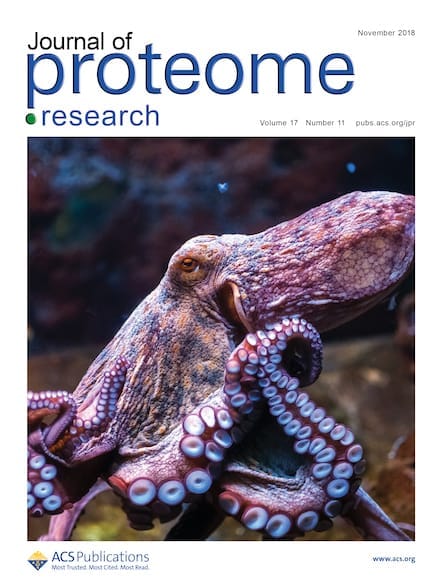Journal of Proteome Research published its 5th annual special issue dedicated to highlighting recent developments with the Human Proteome Project. Now the journal is calling for papers for its 2018 special issue, which will consider papers reporting on the Chromosome-Centric Human Proteome Project (C-HPP) and the Biology and Disease Human Proteome Project (B/D-HPP), as well […]

Journal of Proteome Research published its 5th annual special issue dedicated to highlighting recent developments with the Human Proteome Project. Now the journal is calling for papers for its 2018 special issue, which will consider papers reporting on the Chromosome-Centric Human Proteome Project (C-HPP) and the Biology and Disease Human Proteome Project (B/D-HPP), as well as short reports in the letters format on the discovery of a missing protein(s).
What is the Human Proteome Project?
The Human Proteome Project (HPP), organized by the Human Proteome Organization (HUPO), is a collaborative effort among scientists around the world to advance the understanding of the human proteome. With currently known technologies, researchers aim to map the entire human proteome, which would allow a better understanding of human biology at the cellular level and to apply such knowledge in many fields of study.
The two main programs of the HPP are the chromosome-based HPP (C-HPP) and the biology/disease-driven HPP (B/D-HPP). The goal and plans, as well as the current status of the B/D-HPP, are discussed in detail in Journal of Proteome Research. One publication example is an article written by Dr. Lam et al. reporting on the popular protein lists for six organ systems.
Outstanding Research in This 2017 HPP Special Issue Includes:
The Human Plasma Proteome Draft of 2017: Building on the Human Plasma PeptideAtlas from Mass Spectrometry and Complementary Assays
J. Proteome Res., 2017, 16 (12), pp 4299–4310
DOI: 10.1021/acs.jproteome.7b00467
Schwenk et al. report a major update of the human plasma proteome with the Plasma PeptideAtlas 2017-04. The current human plasma proteome has 3,509 highly confident canonical plasma proteins that meet the HPP MS data interpretation guidelines. They note an additional 1,337 ambiguous matches and 1,740 redundant matches.
Digging More Missing Proteins Using an Enrichment Approach with ProteoMiner
J. Proteome Res., 2017, 16 (12), pp 4330–4339
DOI: 10.1021/acs.jproteome.7b00353
Li et al. use Triton X-100/TBS solubilization plus ProteoMiner hexapeptide-covered beads as an enrichment/equalization strategy for low-abundance proteins by reducing the concentration of high-abundance proteins in four human cancer tissues (kidney, bladder, liver, colorectal).
Multi-Protease Strategy Identifies Three PE2 Missing Proteins in Human Testis Tissue
J. Proteome Res., 2017, 16 (12), pp 4352–4363
DOI: 10.1021/acs.jproteome.7b00340
Wang et al. pursue a multi-protease strategy for detection of missing proteins candidates from their previously analyzed testis samples. Multi-protease mixtures (trypsin, lysargiNase, GluC) improve both the peptide diversity and the sequence coverage, compared with the use of trypsin alone.
